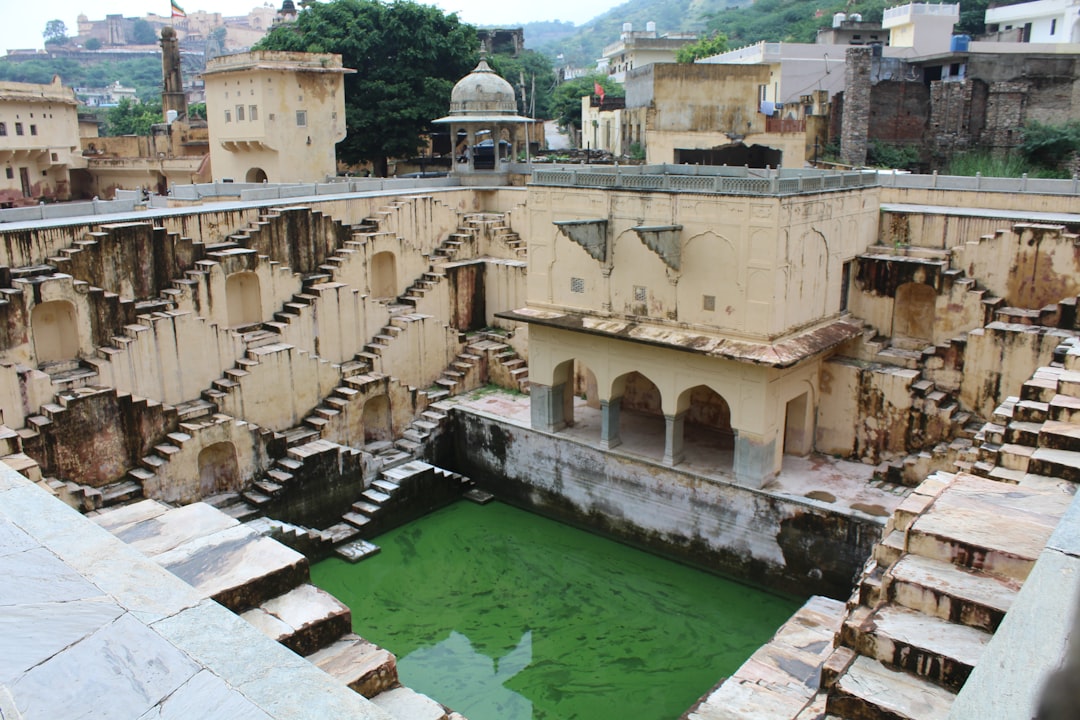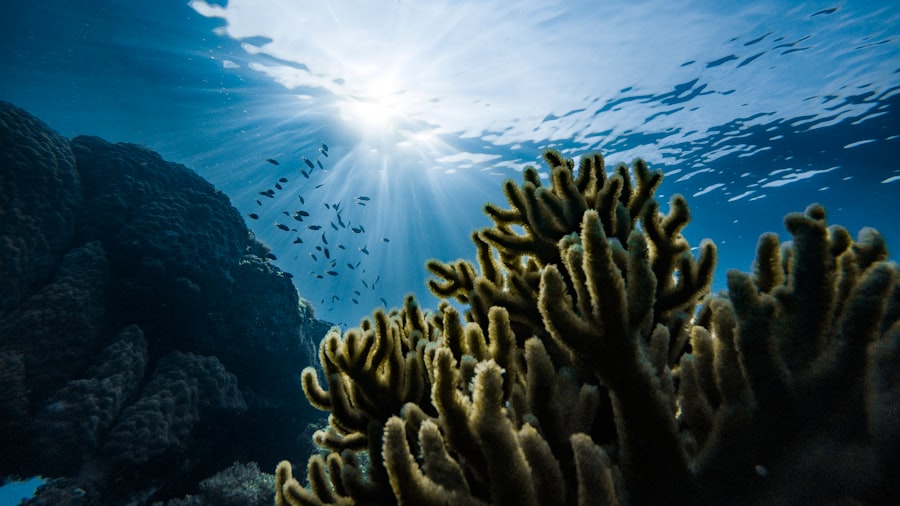
Water is an essential resource that sustains life on Earth, yet it is often taken for granted. The significance of water conservation cannot be overstated, as it plays a crucial role in ensuring the availability of clean water for future generations. With the global population projected to reach nearly 10 billion by 2050, the demand for freshwater is expected to increase dramatically.
This rising demand, coupled with climate change and pollution, poses a significant threat to our water supply. As such, understanding the importance of conserving water is vital for both environmental sustainability and human survival. The depletion of freshwater resources has far-reaching consequences.
Additionally, water scarcity can exacerbate social tensions and economic disparities, particularly in regions where access to clean water is already limited. By prioritizing water conservation, we can mitigate these issues and promote a more equitable distribution of this precious resource.
Furthermore, conserving water can lead to significant cost savings for individuals and communities, as reduced water usage translates to lower utility bills and decreased infrastructure strain.
Key Takeaways
- Water conservation is crucial for preserving the environment and ensuring sustainable access to clean water for future generations.
- Different water conservation techniques, such as rainwater harvesting and greywater recycling, can be implemented to reduce water usage.
- Implementing water conservation practices in everyday life, such as fixing leaks and using water-efficient appliances, can make a significant impact.
- Obtaining a conservation certificate can provide individuals with the knowledge and skills to effectively promote and implement water conservation practices.
- To obtain a conservation certificate, individuals can enroll in training programs or courses offered by various organizations and institutions.
Exploring Different Water Conservation Techniques
Various techniques can be employed to conserve water, each tailored to specific environments and needs. One of the most effective methods is rainwater harvesting, which involves collecting and storing rainwater for later use. This technique not only reduces reliance on municipal water supplies but also helps manage stormwater runoff, which can lead to flooding and erosion.
In urban areas, rain barrels can be installed to capture rainwater from rooftops, while larger systems can be designed for agricultural or industrial applications. Another technique gaining popularity is xeriscaping, a landscaping approach that emphasizes drought-resistant plants and efficient irrigation practices. By selecting native or drought-tolerant species, homeowners can create beautiful gardens that require minimal watering.
Additionally, implementing drip irrigation systems can significantly reduce water waste in gardens and farms by delivering water directly to the plant roots, minimizing evaporation and runoff. These techniques not only conserve water but also promote sustainable land use practices that benefit the environment.
Implementing Water Conservation Practices in Everyday Life

Incorporating water conservation practices into daily routines can have a substantial impact on overall water usage. Simple changes, such as fixing leaks in faucets and toilets, can prevent significant water loss over time. A dripping faucet can waste gallons of water each day, making it essential to address these issues promptly.
Moreover, installing low-flow fixtures, such as showerheads and toilets, can drastically reduce water consumption without sacrificing performance. Another effective practice is mindful water usage during household chores. For instance, running dishwashers and washing machines only with full loads can maximize efficiency and minimize waste.
Additionally, individuals can adopt habits like taking shorter showers or turning off the tap while brushing teeth. These small adjustments may seem insignificant individually, but collectively they contribute to substantial water savings. By fostering a culture of conservation within households and communities, we can create a more sustainable future.
The Benefits of Obtaining a Conservation Certificate
| Benefits | Description |
|---|---|
| Increased Knowledge | Obtaining a conservation certificate provides a deeper understanding of environmental issues and conservation practices. |
| Career Opportunities | It opens up career opportunities in the field of conservation, including roles in environmental organizations, government agencies, and non-profit organizations. |
| Networking | It allows for networking with professionals in the conservation field, which can lead to mentorship and job opportunities. |
| Hands-on Experience | Many conservation certificate programs offer hands-on experience in the field, allowing for practical application of conservation principles. |
| Personal Fulfillment | It can provide a sense of personal fulfillment and contribution to the protection of the environment and natural resources. |
Obtaining a conservation certificate offers numerous advantages for individuals and organizations committed to sustainable practices. This certification serves as a formal recognition of efforts made toward conserving water and promoting environmental stewardship. For businesses, having a conservation certificate can enhance their reputation and appeal to environmentally conscious consumers who prioritize sustainability in their purchasing decisions.
Moreover, many government programs and non-profit organizations offer financial incentives for certified entities. These incentives may include grants, tax breaks, or reduced utility rates, making it financially advantageous to pursue certification. Additionally, obtaining a conservation certificate can open doors to networking opportunities with other environmentally focused organizations and initiatives.
This collaborative spirit fosters innovation and knowledge sharing, ultimately leading to more effective conservation strategies.
How to Obtain a Conservation Certificate
The process of obtaining a conservation certificate typically involves several steps designed to assess an entity’s commitment to sustainable practices. First, interested individuals or organizations must research the specific requirements set forth by certifying bodies in their region. These requirements may vary based on local regulations and the type of certification sought—whether for residential properties, commercial enterprises, or agricultural operations.
Once familiar with the criteria, applicants must conduct a thorough assessment of their current water usage and conservation practices. This may involve auditing existing systems, identifying areas for improvement, and implementing necessary changes to meet certification standards. After making these adjustments, applicants can submit their documentation for review by the certifying organization.
Upon successful evaluation, the entity will receive its conservation certificate, signifying its dedication to responsible water management.
Maximizing Water Resources in Agriculture and Industry

Agriculture and industry are two sectors that significantly impact water resources; therefore, maximizing efficiency in these areas is crucial for overall conservation efforts. In agriculture, techniques such as precision irrigation have emerged as game-changers in optimizing water use. This method employs technology to deliver precise amounts of water directly to crops based on their specific needs, reducing waste and enhancing crop yields.
In industrial settings, companies are increasingly adopting water recycling systems that treat and reuse wastewater for various processes. This not only conserves freshwater but also minimizes the environmental impact associated with wastewater disposal. Industries are also exploring alternative sources of water, such as desalination or greywater recycling, which can supplement their needs without further depleting natural freshwater sources.
The Role of Government and Policy in Water Conservation
Government policies play a pivotal role in promoting water conservation at local, national, and global levels. Effective legislation can establish frameworks for sustainable water management practices while incentivizing individuals and businesses to adopt conservation measures. For instance, many governments implement tiered pricing structures for water usage that charge higher rates for excessive consumption, encouraging users to be more mindful of their usage.
Additionally, public awareness campaigns funded by government agencies can educate citizens about the importance of water conservation and provide practical tips for reducing consumption. Collaborative efforts between governments and non-profit organizations can also lead to innovative programs aimed at restoring ecosystems that support natural water cycles. By prioritizing water conservation in policy-making processes, governments can ensure that future generations have access to this vital resource.
The Future of Water Conservation: Innovations and Technologies
As the challenges surrounding water scarcity continue to grow, innovations and technologies are emerging to address these issues effectively. Smart irrigation systems equipped with sensors can monitor soil moisture levels in real-time, automatically adjusting watering schedules based on weather conditions and plant needs. This technology not only conserves water but also enhances crop health by providing optimal growing conditions.
Furthermore, advancements in desalination technology are making it increasingly feasible to convert seawater into potable water. While traditionally energy-intensive and costly, recent innovations have led to more efficient processes that could expand access to freshwater in arid regions or areas facing severe droughts. Additionally, research into atmospheric water generation—extracting moisture from the air—holds promise for providing clean drinking water in areas where traditional sources are scarce.
The integration of artificial intelligence (AI) into water management systems is another exciting development on the horizon. AI algorithms can analyze vast amounts of data related to weather patterns, consumption trends, and infrastructure performance to optimize resource allocation and predict future needs. By harnessing these technologies, society can move toward a more sustainable approach to managing one of our most precious resources: water.
If you are interested in furthering your education in the field of water resources and conservation, you might find the Saddleback College career, degree, and certificate programs overview particularly useful. Saddleback College offers a comprehensive range of programs that could enhance your knowledge and skills in environmental and water resource management. For more detailed information on what programs might align with your career goals, you can visit Saddleback College Programs. This resource provides insights into various educational pathways that could help you achieve a Certificate of Achievement in Water Resources and Conservation among other related fields.
FAQs
What is water conservation?
Water conservation refers to the careful and efficient use of water resources in order to reduce waste and ensure sustainable access to clean water for future generations.
Why is water conservation important?
Water conservation is important because it helps to preserve and protect our natural water resources, reduces the strain on water supplies, and helps to mitigate the impacts of drought and water scarcity.
What are some water conservation techniques?
Some water conservation techniques include fixing leaks, using water-efficient appliances, reducing water usage in landscaping, and implementing water-saving practices in agriculture and industry.
What is a Certificate of Achievement in Water Resources and Conservation?
A Certificate of Achievement in Water Resources and Conservation is a credential that signifies completion of a program of study focused on water conservation, sustainable water management, and related topics.
What can you do with a Certificate of Achievement in Water Resources and Conservation?
With a Certificate of Achievement in Water Resources and Conservation, individuals can pursue careers in water management, environmental conservation, agriculture, urban planning, and other fields related to sustainable water resources.





